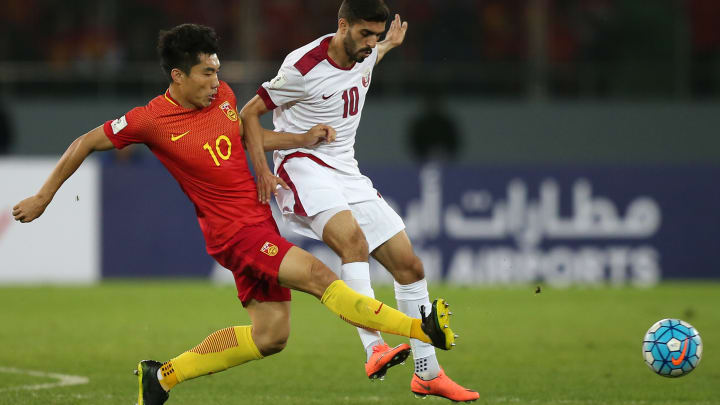2022 World Cup in Qatar moved to winter, but is air cooling technology good enough?

Read about the latest sports tech news, innovations, ideas and products that impact players, fans and the sports industry at SportTechie.com.
If you’re planning a summer to Qatar, pack all the light cotton you’ve got. The daily temperatures can reach 108 degrees Fahrenheit. And for that reason, you won’t see a whole lot of major sporting events being hosted by the small nation on the Arabian Peninsula.
But that could change. Qatar is the host the 2022 World Cup, and in an attempt to dodge the heat, six years from now, the World Cup will be held in winter for the first time.
In fact, one official insisted that not only is the cooling technology is there to make it an environment conducive to soccer, but also future events could easily be held in the summer.
Subscribe to the
SportTechie Newsletter
- Ernie Johnson discusses religion, election
- Sling TV goes head-to-head with Playstation Vue
- Under Armour partners with fishing app
The Supreme Committee for Delivery & Legacy, which oversees the 2022 World Cup in Qatar, had assistant secretary general Nasser Al Khater tell Indian reporters of the advanced and sustainability of the air-cooling system. He used as an example Sadd Stadium, which has had air conditioning to keep players and fans cool in Doha since 2008 even though it is an open-air stadium.
“Al Sadd stadium has had air-conditioning since 2008. It’s an open-air stadium and it works perfectly well,” he told ESPN India earlier this month. “Nobody knew about it, but we developed it. Qatar has the intellectual property for this technology.
“There’s now further refined technology, something that works on renewable energy. This is available now and it’s only going to get cheaper with time. It means that there are solutions out there.
According to Advanced Technical Solutions, which produced the outdoor cooling solution, the technology helped Qatar in win the World Cup bid, “proving that the Gulf region can compete with any other location for global events.”
The technology would’ve made it possible for the city near the equator to host in the middle of summer, despite the heat, according to Al Khater.
“We were kind of disappointed [with the shift in dates]; we wanted to show off the air-cooling technology. I still think there’s an opportunity to use it,” Al Khater told ESPN India. “I still think we’ll use it, and I still think people will appreciate the benefits of it.”
The Supreme Committee for Delivery & Legacy also reported earlier this month that proposed semifinal venue Al Bayt Stadium will be constructed with a retractable roof in the middle of an Arabian tent design that can close within 20 minutes. and other cooling technology.
The stadium will have other cooling technology “thanks to a number of cooling devices distributed throughout the venue that will receive cold water from the chillers in the nearby energy centre,” according to senior media specialist Isabel Ovalle Dávalos.
